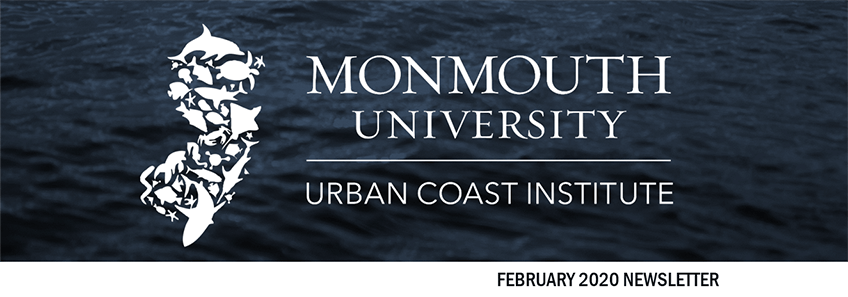
UPCOMING EVENTS AT MONMOUTH
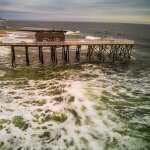 March 10
March 10
Accountability for Climate Change Harms in New Jersey: Scientific, Legal and Policy Perspectives
Free and Open to the Public/Registration Required
 March 25
March 25
Fish Suffering, Climate Change, and the Public Trust Doctrine
Free and Open to the Public
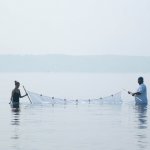 March 26-28
March 26-28
Atlantic Estuarine Research Society (AERS) Spring Meeting
 March 26
March 26
Margaret A. Davidson Coastal Careers Workshop
Registration Required/See Site for Fees
 April 16
April 16
Climate Change and Public Health Roundtable
Free and Open to the Public/Registration Required
 Open Daily through March 13
Open Daily through March 13
Exhibition: Inquire Within by Aurora Robson
Free and Open to the Public
Herrington Joins Team Studying Climate Impacts on Human Migration in U.S.
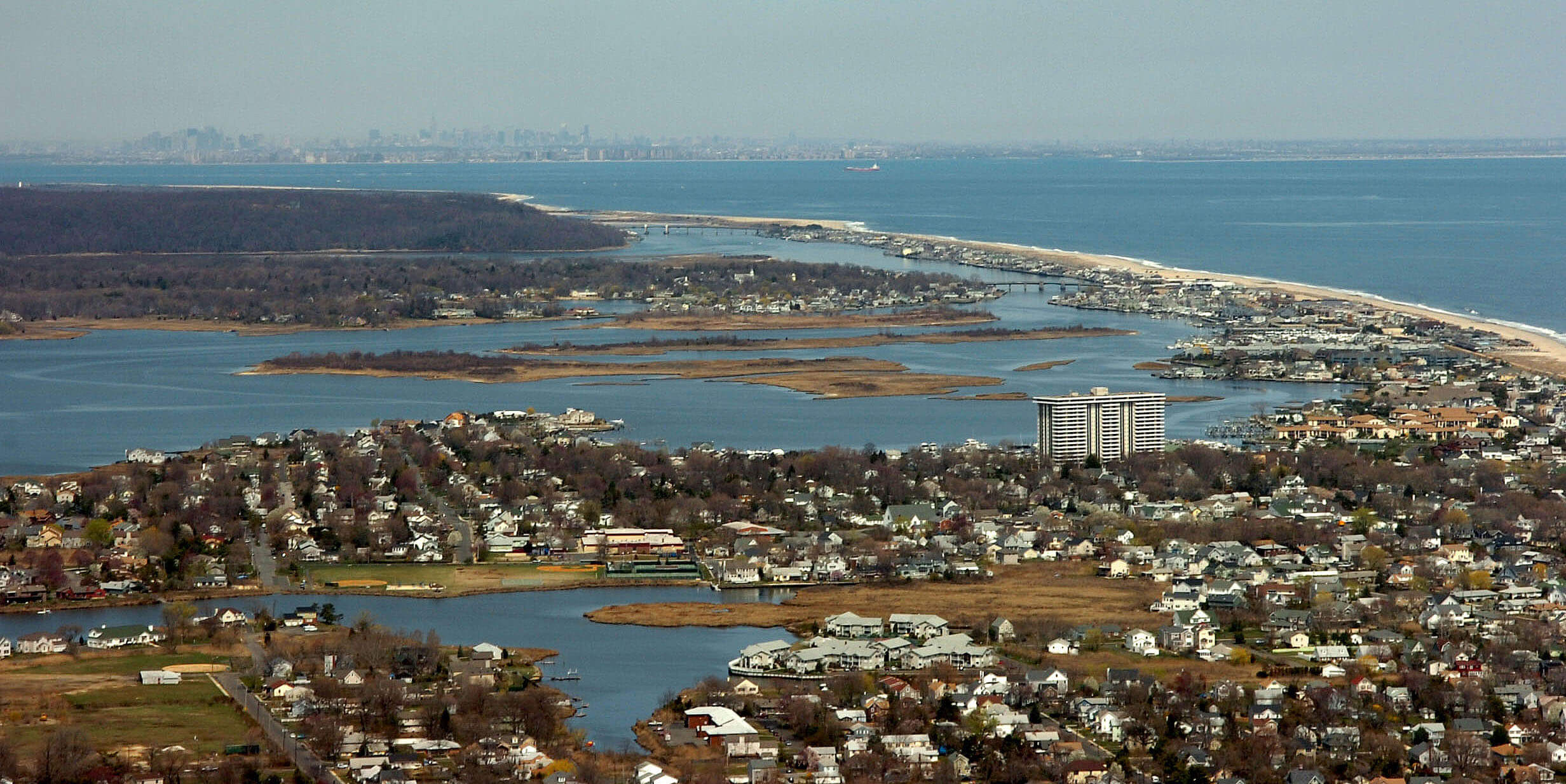
UCI Associate Director Thomas Herrington will serve on a national team of researchers focused on understanding climate change’s current and future influence on residential migration from America’s coastal communities.
The “People on the Move in a Changing Climate” project will build a Regional Coordination Network (RCN) led by representatives of 12 Sea Grant offices and Sea Grant-affiliated research institutions from the East Coast, West Coast, Gulf Region and Alaska. Herrington serves as the coastal community resilience specialist for the New Jersey Sea Grant Consortium. The three-year project is being managed by the University of Georgia and supported with a grant from the National Science Foundation (NSF).
The RCN will leverage Sea Grant’s relationships with local communities to facilitate collaboration among scientists, practitioners, resource managers and stakeholders to study climate-induced human mobility (including displacement, migration and planned relocation), its socioeconomic consequences, and its role in building resilience. It will also provide the scientific infrastructure required to conduct regionally tailored educational and engagement strategies.
According to the project abstract, sea level rise could force millions of U.S. residents from their homes by 2100, but researchers have paid relatively little attention to the impact of climate-induced human mobility on the receiving communities. And few coastal communities appear to be preparing for the projected influxes of people from sudden disaster-induced relocations and, more slowly, in response to the progressive impacts of sea level rise.
Herrington said that while climate-induced human mobility has been the subject of some research in places suffering from sea level rise and increased flooding, such as Bangladesh, or climate-driven changes in crop yields in Central America, less attention has been paid on its ramifications for America. He said the signs are already apparent in parts of the country.
“We’re starting to see it happen in Alaska,” Herrington said. “The first tipping point has been the villages along the coast, where sea level is rising, the permafrost is melting rapidly and people’s homes are sinking.”
The RCN will host a series of workshops throughout the country to develop research questions around the subjects of climate mobility and coastal resilience. The first workshop for the Northeast region is expected to be held at Monmouth University in the fall and gather experts from Maine to North Carolina.
Rep. Pallone, Tammy Murphy Champion CLEAN Future Act at Monmouth
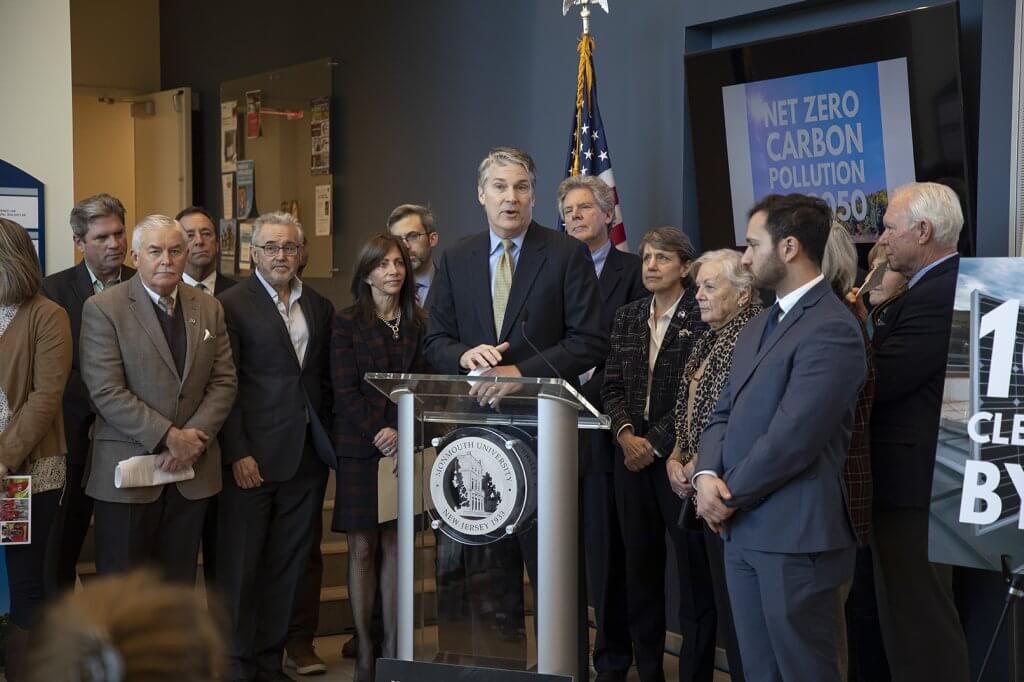
Congressman Frank Pallone, Jr. held a press conference at Monmouth University’s Thomas Edison A. Edison Science Hall on Jan. 17 to discuss the framework of the CLEAN Future Act, a federal proposal to achieve a 100 percent clean economy by 2050. Pallone was joined at the podium by New Jersey First Lady Tammy Murphy, New Jersey Department of Environmental Protection Commissioner Catherine McCabe, and several other public officials and environmental advocates.
Monmouth University President Patrick Leahy and Urban Coast Institute Director Tony MacDonald delivered introductory remarks.
“I saw a t-shirt the other day that said, ‘The greatest threat of global climate change is thinking that somebody else will do something about it,’” Leahy said. “That really struck me, and I’m really pleased to have everyone who is assembled here this morning, tackling this important issue not just for our country but for our planet.”
The CLEAN Future Act outlines a sector-by-sector plan for America to reach net zero greenhouse gas emissions in 30 years. Among its components, the draft legislation calls for electricity suppliers to increase their supplies of clean energy beginning in 2020 and reach 100% green levels by 2050.
Pallone is the chair of the House of Representatives’ Energy and Commerce Committee, which announced the legislative framework last week.
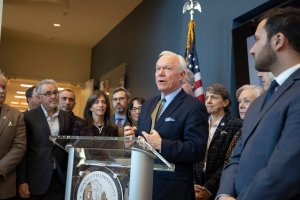 “I need to thank [Congressman Pallone] on behalf of the ocean because people are increasingly recognizing the climate-ocean nexus,” MacDonald said. “This is a real issue. Twenty-five percent of carbon that is emitted goes into the ocean. Ninety percent of the excess heat that comes from greenhouse gases goes into the ocean, and we can’t handle much more of it.”
“I need to thank [Congressman Pallone] on behalf of the ocean because people are increasingly recognizing the climate-ocean nexus,” MacDonald said. “This is a real issue. Twenty-five percent of carbon that is emitted goes into the ocean. Ninety percent of the excess heat that comes from greenhouse gases goes into the ocean, and we can’t handle much more of it.”
Visit the links below for multimedia and news coverage of the event and the CLEAN Future Act.
National Ocean Service Leader Gives Guest Lecture to Monmouth Class
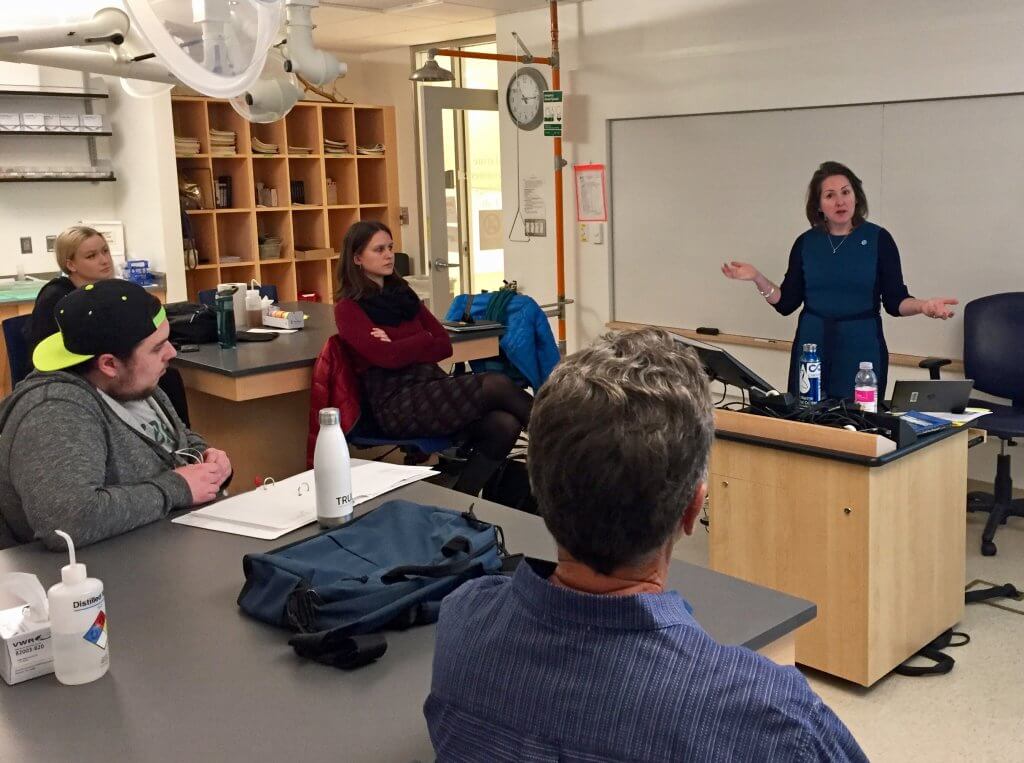
The Urban Coast Institute welcomed Nicole LeBoeuf, acting assistant administrator for the National Oceanic and Atmospheric Administration (NOAA) National Ocean Service, to Monmouth University on Jan. 30 to talk with students about the NOS’ work and careers in the agency.
The mission of the NOS is to provide science-based solutions through collaborative partnerships to address evolving economic, environmental and social pressures on our oceans and coasts. It observes, measures, assesses, and manages the nation’s coastal, ocean, and Great Lakes areas; provides critical navigation products and services; and conducts response and restoration activities to protect vital coastal resources.
Guest lecturing to School of Science Assistant Dean John Tiedemann’s coastal zone management (CZM) class, LeBoeuf described her work guiding the strategic vision of the 1,800-member agency.
“We’re small, but we’re scrappy, and we’re doing lots of amazing things,” she said.
LeBouef praised the Coastal Zone Management Act of 1972 for bringing much-needed consistency to how the states deal with their shorelines and waters. The goal of the act, which is administered by NOAA, is to preserve, protect, develop, and where possible, restore or enhance the resources of the nation’s coastal zone. Currently, 34 states have Coastal Zone Management Programs in place – every state along the shore or Great Lakes but Alaska.
The vast diversity of America’s coastlines presents one of the greatest challenges for NOS’ work, she said. Flipping between PowerPoint photos of a rural bluff overlooking the sea and a densely developed waterfront city, LeBouef noted, “This is every bit as much a coastal zone arena.”
LeBouef outlined the critical economic importance of coastal zones in the U.S. About 40 percent of Americans live in coastal counties, and beach tourism and recreation adds over $100 billion to the nation’s GDP annually, she said. U.S. commercial ports alone are responsible for 13 million jobs.
“I would challenge you to find anything in this room that didn’t come through a port,” she said. “So it is very important that our ports are taken care of.”
With a broad network of monitoring stations, ocean buoys, satellite communications, autonomous gliders and other scientific equipment at its disposal, the NOS provides data, tools, and services that help protect the ports and coastal economies and prepare them for future challenges, she said. To learn more about the NOS, visit https://oceanservice.noaa.gov.
Abate Delivers Book Talks and Presentations in U.K., Belgium and Canada
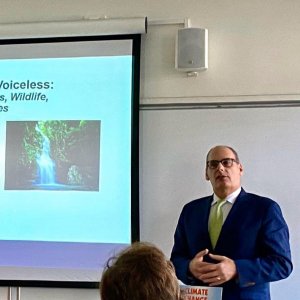 Rechnitz Family/Urban Coast Institute Endowed Chair in Marine and Environmental Law and Policy Randall S. Abate embarked on a U.K. book talk and panel presentation tour last month for his latest work, “Climate Change and the Voiceless.” The tour began Jan. 8, kicking off at the London School of Economics, and ran through Jan. 16 at the University of Kent. Abate traveled to a total of four universities in the U.K. and to the European Commission in Brussels, Belgium.
Rechnitz Family/Urban Coast Institute Endowed Chair in Marine and Environmental Law and Policy Randall S. Abate embarked on a U.K. book talk and panel presentation tour last month for his latest work, “Climate Change and the Voiceless.” The tour began Jan. 8, kicking off at the London School of Economics, and ran through Jan. 16 at the University of Kent. Abate traveled to a total of four universities in the U.K. and to the European Commission in Brussels, Belgium.
At the London School of Economics, Abate met with Lord Carnwath of the British Supreme Court. “It was so inspiring and engaging to speak with Lord Carnwath about climate justice litigation around the world and the role that courts can play in addressing systemic injustices in society such as governmental failures to regulate climate change adequately in the climate crisis era in which we live,” Abate wrote on his climate change law and justice blog.
Presentations at the European Commission, University College London, University of Aberdeen and the University of Kent followed.
On Nov. 19, 2019 Abate also delivered a “Climate Change and the Voiceless” book talk at the University of Toronto Faculty of Law, the top-ranked law school in Canada.
For more information, reflections, and photos from the tour, visit Abate’s climate change law and justice blog.
Story Map: Offshore Wind Energy in the Mid-Atlantic
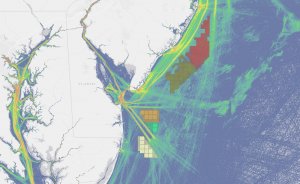 Take a state-by-state tour of active federal offshore wind energy leases from New York through Virginia in this story map on the Mid-Atlantic Ocean Data Portal. The “Ocean Stories” feature provides a primer on the areas where wind farms could be operational in the coming decade and how the Portal is helping inform decisions on where they can be constructed while posing the least amount of conflict with other ocean users, wildlife and ecosystems. The feature was developed by UCI Communications Director Karl Vilacoba, who serves as the Portal’s communications lead and project manager, and Avalon Bristow of the Mid-Atlantic Regional Council on the Ocean (MARCO).
Take a state-by-state tour of active federal offshore wind energy leases from New York through Virginia in this story map on the Mid-Atlantic Ocean Data Portal. The “Ocean Stories” feature provides a primer on the areas where wind farms could be operational in the coming decade and how the Portal is helping inform decisions on where they can be constructed while posing the least amount of conflict with other ocean users, wildlife and ecosystems. The feature was developed by UCI Communications Director Karl Vilacoba, who serves as the Portal’s communications lead and project manager, and Avalon Bristow of the Mid-Atlantic Regional Council on the Ocean (MARCO).
Vilacoba also recently moderated this webinar with U.S. Coast Guard personnel demonstrating how the Portal was used to design new anchorage areas proposed for the Chesapeake and Delaware Bay areas. He and UCI Director Tony MacDonald will be among the speakers in a Feb. 27 Mid-Atlantic Committee on the Ocean webinar dedicated to recent developments in regional ocean planning.
Apply Now for UCI Heidi Lynn Sculthorpe Summer Research Grants
The UCI welcomes Monmouth students and faculty of all disciplines to apply for funding through its Heidi Lynn Sculthorpe Summer Research Grant program. Funding is available to support projects proposed by students with a faculty mentor or by faculty members with students conducting research under their supervision.
Grants are provided for research in natural and social sciences, art and humanities, economics, and public policy involving faculty and students from any school or department at Monmouth University. Past grants have supported projects ranging from the creation of a website dedicated to eco-friendly local businesses to the design of a disaster search and rescue training video game.
Proposals should address issues that advance the UCI’s mission and goals. The UCI seeks to fund research projects on topics including but not limited to:
 Assessing and communicating coastal community vulnerability and risk
Assessing and communicating coastal community vulnerability and risk- The social and economic impact of climate change on communities
- The “blue” coastal and ocean economy
- Coastal and ocean ecosystem protection, restoration and management
- Enhancing community resilience and adaptation planning in the face of sea level rise and coastal storms
- Furthering U.N. sustainability goals at the international, national and local levels
- Coastal community engagement and capacity building to address climate change
- Enhancing consideration for social justice and equity considerations in a changing climate
- Coastal and ocean law and policy
- Marine and environmental arts and humanities
Proposals must be submitted by March 13. Funding is available for students at University research student rates for up to 10 weeks of work, capped at $2,860 per student. A stipend of $800 is available for faculty mentors.
Students must provide a final report or product summarizing their research at the end of the 10th week. Science Students should apply for summer research support through the School of Science Summer Research Program.
Details about the Heidi Lynn Sculthorpe grants are available online (must have My MU Portal login privileges). Additional questions may be directed to UCI Associate Director Tom Herrington at (732) 263-5588 or therring@monmouth.edu.
Student Profile: Meet Aidan Bodeo-Lomicky
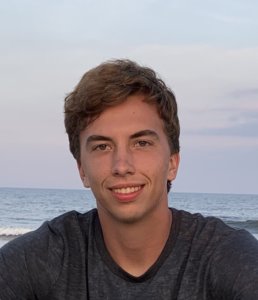 Year & Major: Sophomore/Marine and Environmental Biology and Policy major, Political Science minor
Year & Major: Sophomore/Marine and Environmental Biology and Policy major, Political Science minor
What Are You Working on with the UCI? I am currently working on policy recommendations for the upcoming New Jersey Coastal Management Program rulemaking process, with a focus on how North Atlantic right whales have been and will be impacted by human activities in our waters. I will also be researching coral reef conservation in Belize and determining how their methods can be applied to the Mid-Atlantic region.
Future Goals: After Monmouth, I plan on attending law school to study environmental law. Eventually, I would like to work for an environmental organization as a law and policy expert, specializing in marine and endangered species conservation.
What Is Your Ocean Story? I grew up visiting Sandy Hook with my family, which is how my love for nature and the ocean really began. When I was 12, I witnessed the devastation that Hurricane Sandy caused and learned how climate change will greatly increase storm severity in the coming years. I also spent many years raising awareness for the critically endangered vaquita porpoise, which has dwindled to fewer than 20 individuals remaining on the planet. I have seen firsthand how pollution, unsustainable fishing, and climate change can impact our coastal areas, so doing what I can to protect the ocean and its species is something that I am very passionate about.
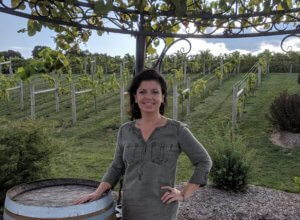 Welcome Aliya Satku
Welcome Aliya Satku
Aliya Satku joined the UCI in December as its administrative assistant. Aliya brings over 20 years of experience in office administration, sales and customer service for organizations including the Renew Jersey Stronger Program, YMCA of Monmouth County and Ray Catena Motor Corp. Aliya enjoys photography, documentaries, health and wellness topics, and a happy cup of coffee. She loves being a global citizen of this beautiful planet earth and has full faith that humanity is going to get it right. Originally from Debar, Macedonia, she now resides in Howell.

Happy Birthday Monmouth University!
On March 25, members of the Monmouth community will join together for an extraordinary day of giving back. Giving Day will celebrate the 25th anniversary of Monmouth College becoming Monmouth University. In honor of our birthday, we’re asking Hawks everywhere to come together to show their pride and make a gift to provide essential funding for student scholarships, academic programs, athletic excellence, and more. Together, our community can help strengthen the university’s ability to provide the best possible experiences for our current and future Hawks. Mark your calendar and click here to learn more.
